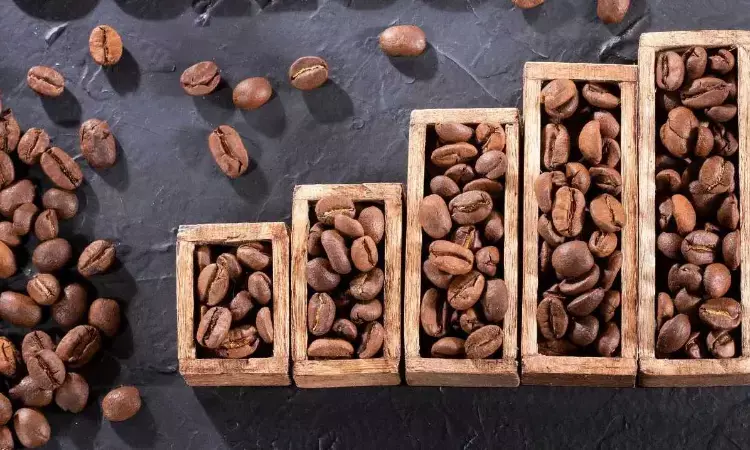- Home
- Medical news & Guidelines
- Anesthesiology
- Cardiology and CTVS
- Critical Care
- Dentistry
- Dermatology
- Diabetes and Endocrinology
- ENT
- Gastroenterology
- Medicine
- Nephrology
- Neurology
- Obstretics-Gynaecology
- Oncology
- Ophthalmology
- Orthopaedics
- Pediatrics-Neonatology
- Psychiatry
- Pulmonology
- Radiology
- Surgery
- Urology
- Laboratory Medicine
- Diet
- Nursing
- Paramedical
- Physiotherapy
- Health news
- Fact Check
- Bone Health Fact Check
- Brain Health Fact Check
- Cancer Related Fact Check
- Child Care Fact Check
- Dental and oral health fact check
- Diabetes and metabolic health fact check
- Diet and Nutrition Fact Check
- Eye and ENT Care Fact Check
- Fitness fact check
- Gut health fact check
- Heart health fact check
- Kidney health fact check
- Medical education fact check
- Men's health fact check
- Respiratory fact check
- Skin and hair care fact check
- Vaccine and Immunization fact check
- Women's health fact check
- AYUSH
- State News
- Andaman and Nicobar Islands
- Andhra Pradesh
- Arunachal Pradesh
- Assam
- Bihar
- Chandigarh
- Chattisgarh
- Dadra and Nagar Haveli
- Daman and Diu
- Delhi
- Goa
- Gujarat
- Haryana
- Himachal Pradesh
- Jammu & Kashmir
- Jharkhand
- Karnataka
- Kerala
- Ladakh
- Lakshadweep
- Madhya Pradesh
- Maharashtra
- Manipur
- Meghalaya
- Mizoram
- Nagaland
- Odisha
- Puducherry
- Punjab
- Rajasthan
- Sikkim
- Tamil Nadu
- Telangana
- Tripura
- Uttar Pradesh
- Uttrakhand
- West Bengal
- Medical Education
- Industry
Higher coffee intake increases risk of abdominal aortic calcification

In a recent study by Heze Fan and team found that the impact of heavy coffee consumption increases abdominal aortic calcification (AAC) among adults with and without hypertension, diabetes, and cardiovascular diseases (CVD). The findings were published in Nutrition, Metabolism and Cardiovascular Diseases Journal.
The study, utilizing data from the National Health and Nutrition Examination Survey (NHANES) 2013–2014, included a total of 2,548 participants. Coffee consumption was assessed through 24-hour dietary recalls, while the severity of AAC was measured using dual-energy X-ray absorptiometry (DXA).
After adjusting for various factors, including age, sex, smoking status, and body mass index, the results showed intriguing associations between coffee consumption and AAC scores. Among participants with hypertension, diabetes, and CVD, high coffee consumption (≥390 g/d) was linked to higher AAC scores. Specifically, individuals with hypertension showed a β value of 0.72 (95% CI: 0.21-1.22), those with diabetes displayed a β value of 1.20 (95% CI: 0.35-2.05), and participants with CVD had a β value of 2.03 (95% CI: 0.71-3.36). Notably, these associations were not observed among individuals without hypertension, diabetes, and CVD.
Interestingly, the study did not find a significant association between decaffeinated coffee consumption and AAC, suggesting that the observed effects may be attributed to the caffeine content in coffee.
The implications of these findings are particularly relevant for individuals with hypertension, diabetes, and CVD. It highlights the importance of considering coffee consumption, particularly caffeinated coffee, as a potential factor influencing AAC severity. Patients with these health conditions may benefit from adjusting their coffee intake as part of a comprehensive approach to reduce the burden of AAC.
It is important to note that this study is observational in nature and establishes associations rather than causal relationships. Further research is warranted to explore the underlying mechanisms and to validate these findings through longitudinal and interventional studies.
Source:
Fan, H., Xiong, Y., Huang, Y., Li, W., Xu, C., Feng, X., Hua, R., Yang, Y., Wang, Z., Yuan, Z., & Zhou, J. (2023). Coffee consumption and abdominal aortic calcification among adults with and without hypertension, diabetes, and cardiovascular diseases. In Nutrition, Metabolism and Cardiovascular Diseases. Elsevier BV. https://doi.org/10.1016/j.numecd.2023.06.013
Neuroscience Masters graduate
Jacinthlyn Sylvia, a Neuroscience Master's graduate from Chennai has worked extensively in deciphering the neurobiology of cognition and motor control in aging. She also has spread-out exposure to Neurosurgery from her Bachelor’s. She is currently involved in active Neuro-Oncology research. She is an upcoming neuroscientist with a fiery passion for writing. Her news cover at Medical Dialogues feature recent discoveries and updates from the healthcare and biomedical research fields. She can be reached at editorial@medicaldialogues.in
Dr Kamal Kant Kohli-MBBS, DTCD- a chest specialist with more than 30 years of practice and a flair for writing clinical articles, Dr Kamal Kant Kohli joined Medical Dialogues as a Chief Editor of Medical News. Besides writing articles, as an editor, he proofreads and verifies all the medical content published on Medical Dialogues including those coming from journals, studies,medical conferences,guidelines etc. Email: drkohli@medicaldialogues.in. Contact no. 011-43720751


